Composer whose highly personal modernism embraced theatre, language and new sonorities
With the death of Luciano Berio, aged 77, music has lost more than a marvellous composer who wrote some of the most moving and beautiful scores of the postwar period. It has lost one of its intellectual mentors, one of that handful of radical reforming composers who redrew the landscape of music. With Stockhausen and Boulez, he was a pioneer in the exploration of new technical resources, and in the extension of Schoenberg's serial principle.
However, what really made Berio's name were those exhilarating pieces of the 1960s and 70s, written when he was living in the United States; from 1965 onwards, he was professor of composition at the Juilliard School, New York. In works such as Laborinthus II (1965) and Sinfonia (1968-69) - which now have the status of modern classics - music, language and theatre were woven into a total experience. In the 1980s, a more grave and reflective tone came over his work, and the echoes of music of the past became more overt - something that many critics, missing the exuberant complexity of his earlier works, held against him.
Berio was born in Oneglia, in the remote Italian province of Liguria, and, in his teens, followed in the footsteps of his grandfather Adolfo and father Ernesto Berio, both leading figures in the musical life of the town, which Berio remembered as being hardly changed since Verdi's day.
The second world war almost passed Oneglia by; only in the conflict's closing days was Berio conscripted into the army of Mussolini's short-lived northern republic of Salo. After an accidental wounding, he fled from hospital to join the partisans and, when the war ended, he was able to enroll at the Milan Conservatoire.
As his course came to an end in 1953, an intellectual revolution was taking place: postwar neo-realism was already being elbowed aside by the neo-avanguardia, which had a similar leftwing stance but substituted for gritty social observation an ironic, often playful, kind of formal experimentation.
Two members of this movement would later become Berio's chief collaborators and intellectual comrades-in-arms; the poet Eduardo Sanguinetti and the philosopher Umberto Eco. And in the 1970s and 1980s, Italy's most renowned living writer, Italo Calvino, would collaborate with Berio on his operas La Vera Storia (A True Story, 1977-81) and Un Re In Ascolto (A King Listens, 1979-84).
But first Berio had to come to terms with the ideas emanating from the Darmstadt summer school, that hotbed of musical avant-gardism. Here the exploration of new sound-sources, particularly electronics, and the search for ever more rigorous and powerful systems of composing, went hand-in-hand. Inspired by what he heard there, and on his first visit to the US in 1952, he began experimenting with electronics. With the late Bruno Maderna, he co-directed the new electronic studio at the Italian state radio from 1953 to 1960, and in 1958 produced an acknowledged classic of electronic music in Omaggio A Joyce.
Meanwhile, in his purely instrumental works Berio was groping for a personal form of serialism, one which would have the rigour of Darmstadt total serialism without its suffocating rigidity. Through a series of works in the late 1950s and early 60s, including the Sequenzas for solo instruments (from 1958 onwards), Tempi Concertati for ensemble (1958-59) and Epifanie for voice and orchestra (1959-61, with later revisions), he elaborated ingenious techniques for injecting into the stiff, immutable serial principle the idea of evolving process.
The change could be summarised as a move from "always the same thing, seen from different angles", to "the gradual emergence of something, which then dissolves into something else". That something need not be self-created, like a series; it could be something already existing, like a folksong or a fragment of Schubert.
Indeed, the boundary between the newly composed and the borrowed could be increasingly blurred, with the result that Berio's music became increasingly tolerant of invasions from outside. "I'm interested by music that creates and develops relations between very distant points, and pursues a very wide transformational trajectory (Beethoven's Diabelli Variations, for instance)."
These might be within music itself, both his own and others. But, in the 1960s, they leapt way beyond music into distant areas. These were, first, new sonorities revealed by electronics; second, language, in particular the experiments in multiple levels of meaning found in the neo-avanguardia; and third, theatre.
The blurring of boundaries between different artistic forms, and the strategies of listening associated with them, is a constant feature of Berio's music from the 1960s, to the extent that defining the works is often difficult. Take the radio composition Visages (1961), where the material assembled and cross-cut on tape is the voice of Berio's first wife, the singer Cathy Berberian. Is this a vocal composition, a radio drama, an experimental poem, or a study in pure sound? Similarly Circles, written for voice, percussion and harp (1960), is an essay in unusual sonorities, a play on verbal meanings and a piece of proto-theatre.
Later works project this fruitful indecision onto ever bigger and more exuberantly filled canvases. Sinfonia, Berio's best known and probably most characteristic work, is a richly complex, hour-long collage, in which spoken and sung texts in many languages are combined with an orchestral score of huge sophistication. The second movement, O King, is an homage to Martin Luther King Jr., in which the phonemes of the martyr's name provide the text. The central movement is a whirlwind of memories of western music, superimposed on the scherzo of Mahler's Second Symphony. This looms up in the texture and then vanishes, only to reappear later, like an underground river breaking surface.
Whether the collage of words hurled into the texture amplifies, or distracts from, the work's coherence as music is a moot point. Complexity can sometimes be self-defeating, as it certainly was in Berio's Opera (1970), a many-layered ironic commentary on the genre. More successful was the opera La Vera Storia, in which the second act is a retelling, in a form Berio describes as "oneiric" [dreamlike], of the story told in the first, where it is "real and concrete".
Many of Berio's favourite writers - Auden, Shakespeare, Barthes - reappear in his next opera, Un Re In Ascolto, which is a reinterpretation of the stage-within-a-stage device. The passivity of the central figure, who comments and remembers endlessly, but who never acts, is emblematic of the composer's later music, which ruminates quietly on memories of itself.
In July 1997, his opera Outis (1995-96) was premiered at La Scala, Milan. Outis is a latter-day Ulysses, who, in five separate narratives, is killed and reborn to undergo allegorical adventures in ever more bizarre surroundings - an ocean liner, a bank, a supermarket. The music, as one reviewer remarked, is "a kind of ocean in which one regularly gets lost and finds oneself again" - an effect heightened by sophisticated electronic treatment of the orchestral sound.
In his last years, Berio's productivity, already remarkable by contemporary standards, actually increased. In 1999, his opera Cronaca Del Luogo, a meditation on biblical themes, was premiered at the Salzburg festival.
Among the numerous recent premieres, Sequenza XIV for solo cello (2001-02) stands out, as this was the last of his long series of pieces for individual instruments, which began with Sequenza I, for flute, more than 40 years earlier. Like all the Sequenzas, this one does not strain against the limits of the instrument, but pits abstract ideas of evolving harmonic fields against the inherited physical characteristics and historical idioms of the instrument.
The pieces are a testament to what Berio described as the slow, majestic evolution of instruments across the ages, an evolution for which he had the profoundest respect. And as if all that were not enough, he threw himself, at the age of 75, into the rejuvenation of that remarkable, but moribund, Roman institution, the unique conglomeration of orchestra, promoter, venue, library and school known as the Accademia Nazionale di Santa Cecilia, of which he became president and artistic director in 2000.
Berio's operas were a source of exasperation to British critics, one of whom asked, "Why can Berio never actually state anything?" But the difficulty of plain statement, and the fragmented sense of self of which that is a symptom, are, after all, the main burdens of modernism. And it was to modernism that Berio remained true.
He married Cathy Berberian in 1950, and they had a daughter. They divorced in 1964, and Berberian died in 1983. His second marriage, to Susan Oyama in 1964, also ended in divorce, in 1971; they had a son and a daughter. He is survived by his third wife, Talia Pecker, whom he married in 1977; they had two sons.
· Luciano Berio, composer, born October 24 1925; died May 27 2003
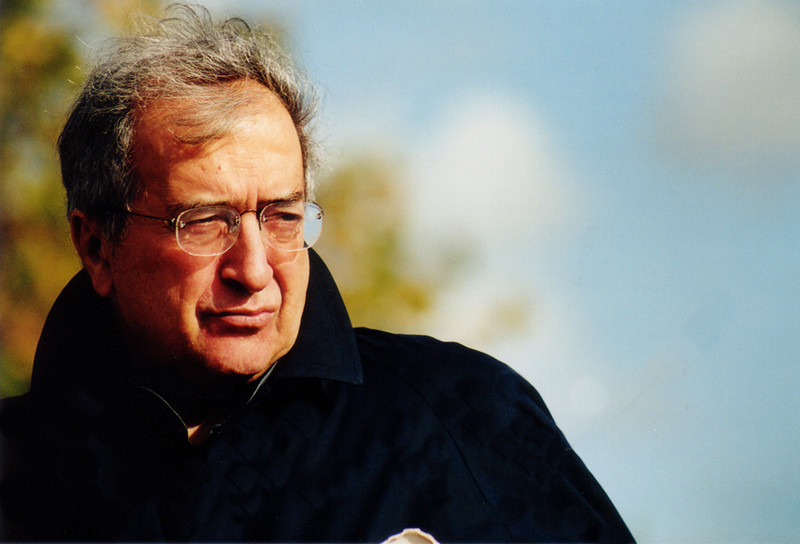
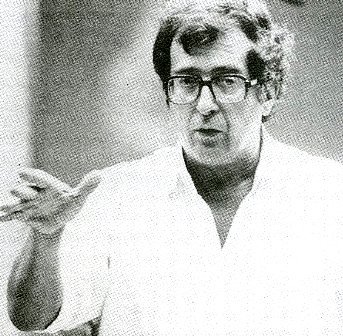 LB
LB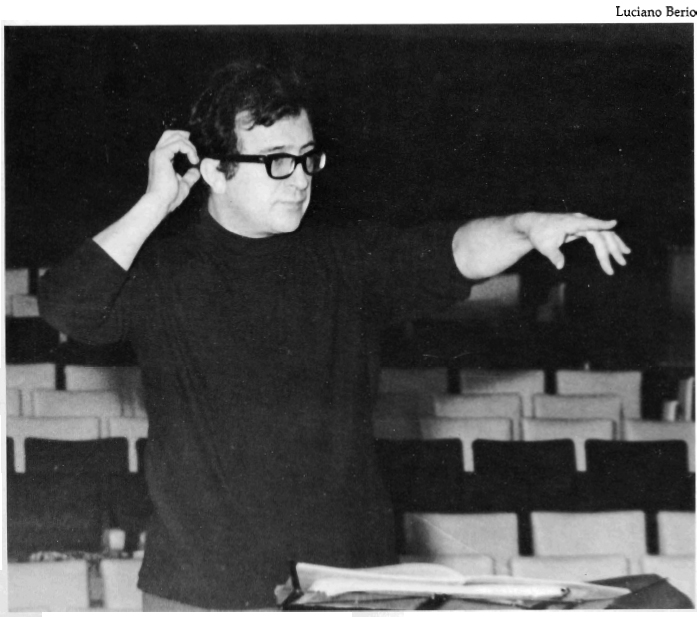 LB
LB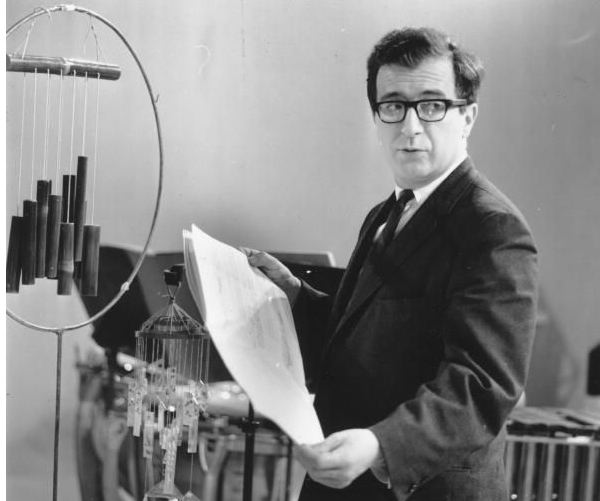 LB
LB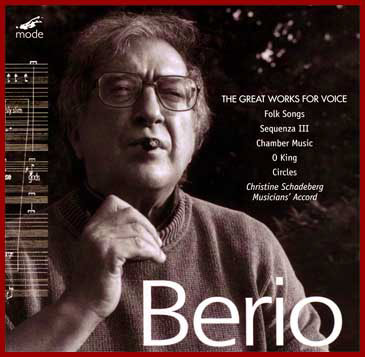 BD
BD